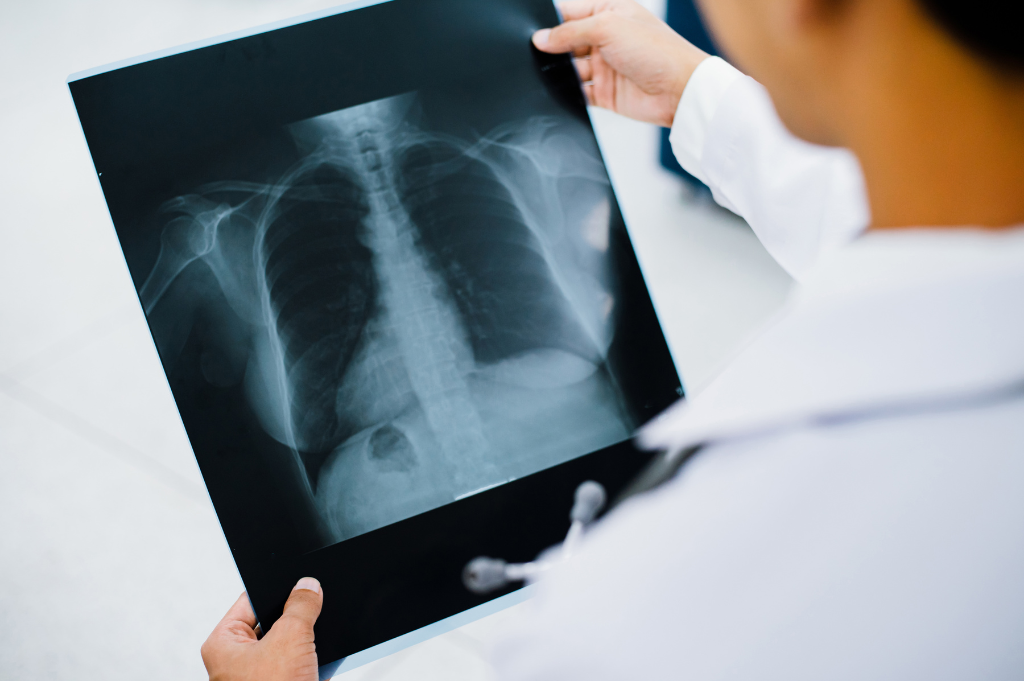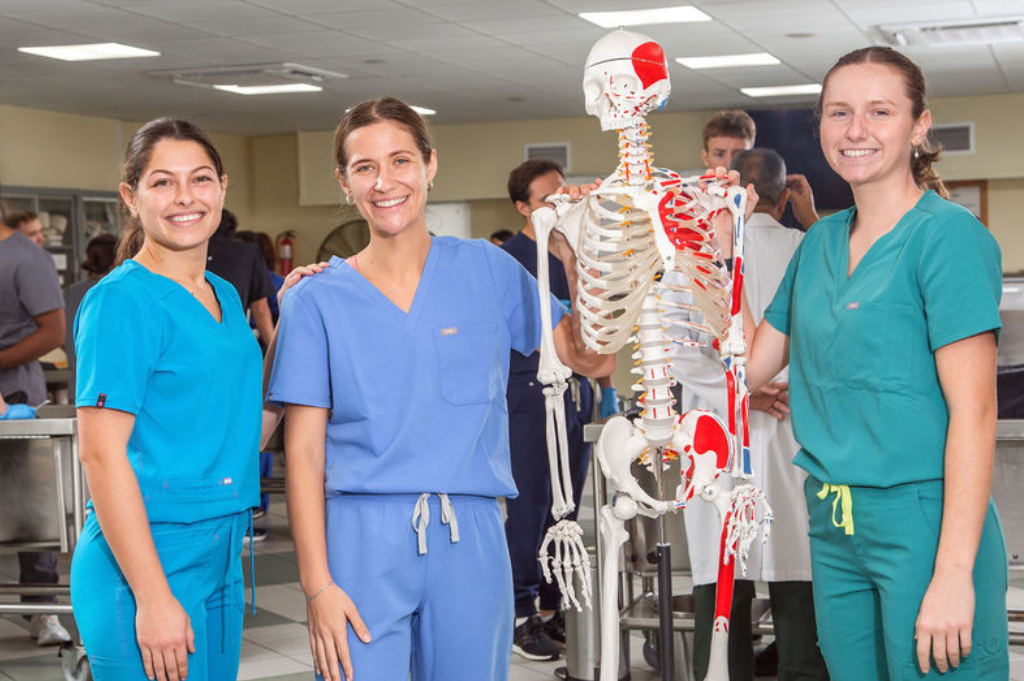
What Is a Pulmonologist: Education, Skills and Career Path
Learn more about doctors who specialize in pulmonology and focus on diseases involving the respiratory tract.
Have you ever wondered what pulmonology is or questioned the difference between a pulmonologist and a cardiologist? If so, you’ve come to the right place!
In this blog post, we’ll dive into the fascinating world of pulmonology, exploring the various career paths in the medical field, the conditions they treat, and the education and training required to pursue a successful career as a pulmonologist.
Read more to learn more about pulmonology and why it may be the perfect medical field for you.
What Is Pulmonology?
Pulmonology is a medical field that specializes in diagnosing and treating conditions that affect the respiratory system.
As an essential field of medicine, pulmonology covers various conditions, from Asthma to Chronic Obstructive Pulmonary Disease (COPD).
Key Components of the Respiratory System
Pulmonologists specialize in lung conditions and are experts in the respiratory system, including the throat (pharynx), voice box (larynx) and windpipe (trachea).
Other key respiratory system components include the lungs, nose and nasal cavity, mouth, sinuses, diaphragm and alveoli.
Importance of Pulmonology
Pulmonology is an essential medical specialty. The respiratory system helps us breathe, so the role of pulmonologists in ensuring this complex system functions properly is vital to our overall good health.
Pulmonologists provide essential services to the public, from diagnosing and treating respiratory diseases to enhancing everyday wellness and helping patients make healthy life choices.
What Is a Pulmonologist?
As you may have guessed, a pulmonologist is a doctor who specializes in pulmonology, diagnosing, treating and managing conditions that affect the respiratory system. They are often known as lung doctors or chest doctors.
Primary Responsibilities
So, what does a pulmonologist do? A pulmonologist must diagnose various respiratory conditions and diseases, assess symptoms, perform physical exams and run tests. They then treat and manage conditions by creating personalized treatment strategies and educating patients on preventive care methods.
Other primary responsibilities for pulmonologists include performing specialized procedures, including lung biopsies, and providing critical care in intensive care units. Many long-term, chronic respiratory diseases, including asthma, COPD and pulmonary hypertension, require pulmonologists’ management and regular treatment.



Difference Between Pulmonologists and Other Specialists
The medical field is full of specialties, from immunology to pathology. So, where does pulmonology fit in?
While they collaborate with other medical specialists, including oncologists, immunologists and cardiologists, pulmonologists are experts in lung health and respiratory problems. They play a key role in treating and managing diseases that affect breathing and educate patients on making healthy lifestyle changes to help them breathe more easily.
Pulmonologist vs. Respiratory Therapist
Despite often working side-by-side, there are key differences between pulmonologists and respiratory therapists. A pulmonologist is an MD or DO who has completed medical school, residency training and a pulmonology fellowship. They are licensed to prescribe medications, order diagnostic tests, perform procedures like lung biopsies, and manage chronic and complex conditions like COPD and lung cancer.
On the other hand, a respiratory therapist is a licensed healthcare professional who must complete a degree program in respiratory therapy and pass a certification exam. They assist in treating patients with breathing issues, administer therapeutic treatments and conduct pulmonary function tests (PFTs). Respiratory therapists provide patient education and therapy based on recommendations from pulmonologists.
Pulmonologist vs. Cardiologist
A cardiologist specializes in the heart and circulatory system, and focuses on blood flow and heart function, while a pulmonologist specializes in the lungs and respiratory system, and focuses on oxygen exchange and ventilation. Both specialists’ procedures differ, with cardiologists trained to perform ECGs and heart surgery, and pulmonologists performing bronchoscopies and lung function tests.
What Conditions Do Pulmonologists Treat?
Pulmonologists treat various conditions and illnesses, from long-term, chronic diseases to chest pain and infections.
Here are ten common conditions treated by pulmonologists:
- Asthma
- COPD
- Pulmonary hypertension
- Lung cancer
- Cystic fibrosis
- Tuberculosis
- Bronchitis
- Pneumonia
- Sleep apnea
- Long COVID
How to Become a Pulmonologist
Now that you know the general roles and responsibilities of a pulmonologist, let’s explore the journey to becoming a pulmonologist and what a career in pulmonology can bring.
Education and Training Pathway in Pulmonology
Like many medical specialties, the path to becoming a pulmonologist is long and challenging. After high school, becoming a fully licensed pulmonologist typically takes around 13 years of education and medical training. Those seeking a career in pulmonology must pass various examinations, including the MCAT (U.S. students), USMLE and other professional exams.
Here are the typical steps to becoming a pulmonologist:
- College or university undergraduate program (4 years)
- Medical school (4 years)
- Internal medicine residency (3 years)
- Pulmonary fellowship (2-3 years)
- Licensing and board certification
Career Prospects and Job Opportunities in Pulmonology
After dedicating time to this in-demand medical field, pulmonologists can explore various career paths, working across multiple settings, including hospitals, clinics and private practices.
Some professionals choose to specialize in areas like critical care and sleep medicine, while others may specialize in certain age groups, pursuing a career as a pediatric pulmonologist for example.
Average Salary of a Pulmonologist
While offering personal fulfillment and community impact, a career in pulmonology also offers attractive financial rewards and long-term advancement prospects for individuals.
According to Salary.com, the average annual salary for a pulmonologist in the United States is $297,827 USD. However, pulmonologist salary ranges can vary significantly depending on various factors, including education, location and experience level.
Challenges and Rewards of a Pulmonology Career
While pulmonologists must navigate day-to-day challenges, a career in pulmonology offers many personal and professional benefits.
Common challenges include treating complex illnesses and diseases, working in high-stress environments, including intensive care units, and the long training and education pathway.
The main rewards of a pulmonology career are providing life-changing and saving treatments, the opportunity to develop long-term patient relationships, and diverse career opportunities with the chance to subspecialize in different areas of pulmonology.
Take Your Next Steps in Medicine at SUSOM
A career in pulmonology may feel like a long way away right now, but Saba University School of Medicine (SUSOM) can help you get there!
SUSOM offers a four-year MD program that parallels the training received at U.S. and Canadian medical schools. Taught by dedicated medical faculty who are committed to providing rigorous instruction and individualized support, SUSOM offers students a comprehensive medical education that helps them become knowledgeable physicians.
To learn more about student life at SUSOM and what you can achieve after graduation, check out this testimonial video from a practicing alum:
Then apply now to start your medical education at SUSOM in January, May or September!
FAQs About Pulmonologists
Pulmonologists treat various illnesses and diseases, including chronic, complex conditions. Three conditions typically treated by a pulmonologist are asthma, COPD and lung cancer.
After high school, becoming a fully licensed pulmonologist typically takes around 13 years of education and medical training. The steps include completing your undergraduate studies in a science-focused program, medical school, an internal medicine residency, a pulmonology fellowship and licensing exams.
The terms pulmonologist and chest doctor are commonly used interchangeably. So, what is a pulmonologist? A pulmonologist is an MD or DO who specializes in diagnosing and treating conditions that affect the respiratory system. While ‘chest doctor’ is an informal name usually referring to a pulmonologist, it sometimes refers to other specialists, like cardiologists.
If you have a respiratory condition that requires specialized testing, you may be referred to a pulmonologist. Symptoms that may require seeing a pulmonologist are a chronic cough, shortness of breath, asthma attacks and chest pain or tightness. If a child has difficulty breathing, they may see a pediatric pulmonologist.

For Prospective Students
SUSOM is committed to supporting prospective students throughout the admissions process. Please click the following links for detailed information about each topic: